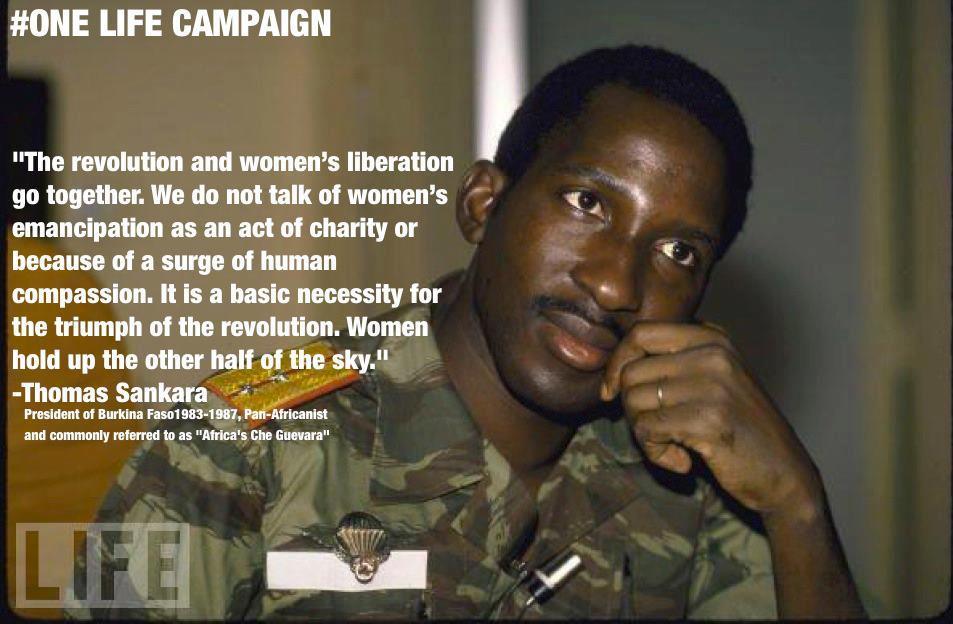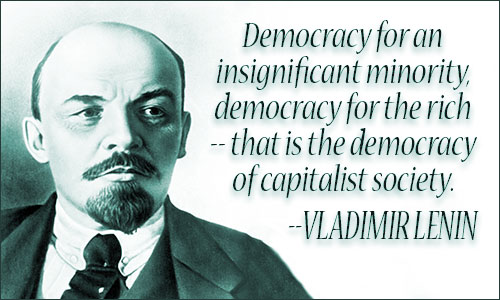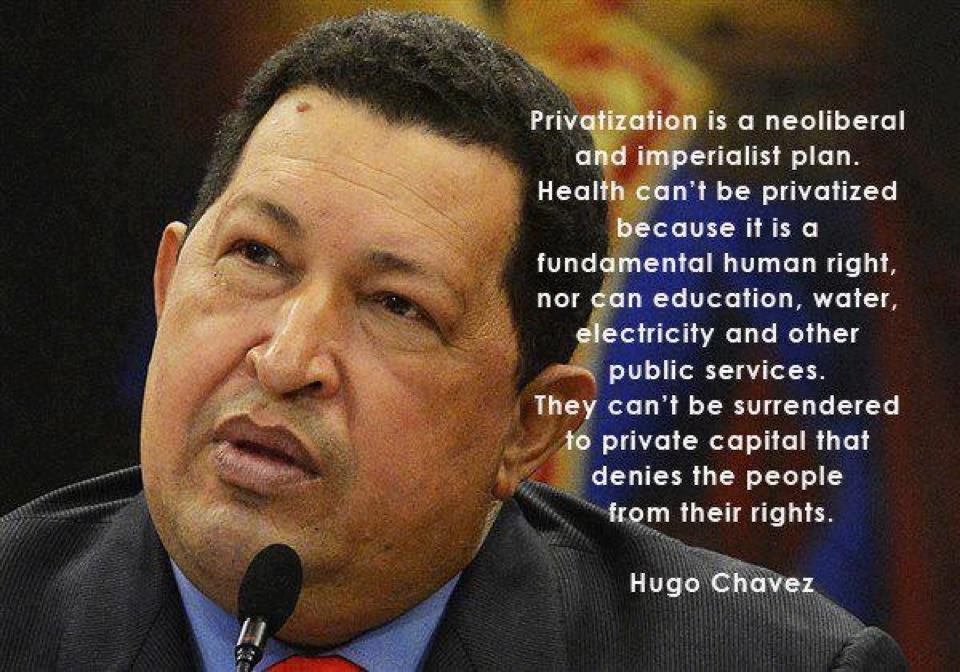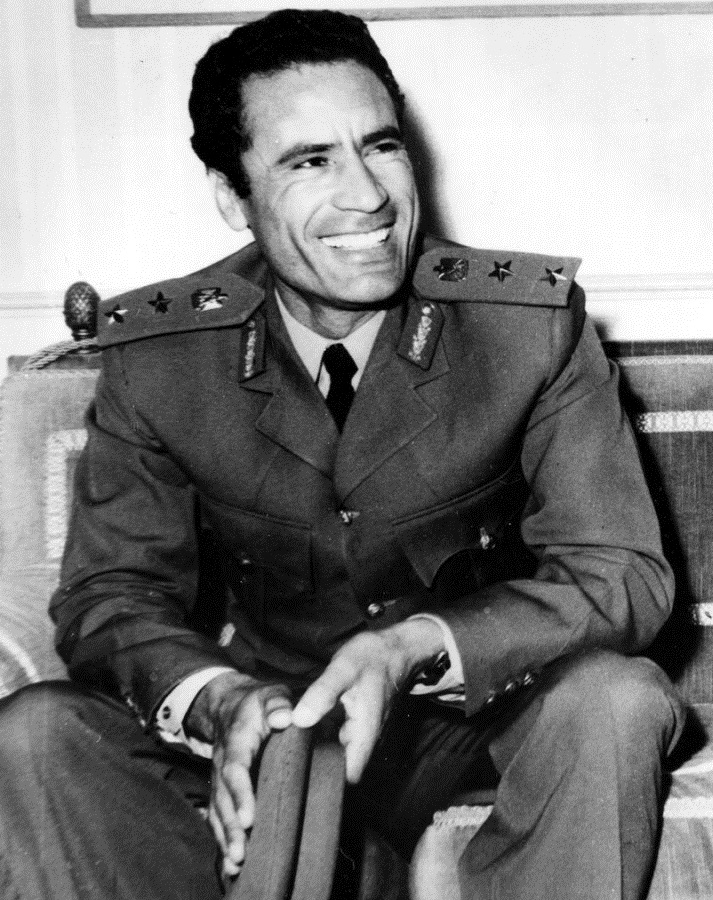- Joined
- Apr 23, 2017
- Messages
- 2,945
- Reaction score
- 0
I see that Marxism is quite aggressively misunderstood here, with some so stupid as to believe social democracy = communism = state capitalism. Since using historical figures as reference points for arguments is an argumentative favorite here as well, I figure that one of the most helpful starting points for understanding the extremely complex and often misunderstood intersections of Marxism, Leninism, etc. is to provide a brief overview of its most famous---purported--representatives.
Of course, this is not comprehensive and only deals with revolutionaries, not thinkers, academics, or intellectuals, which number in the thousands. Also, it is not comprehensive of even that subset. Truthfully, I myself am not particularly extreme, despite my username: I consider myself a democratic socialist, just left of social democratic capitalists like Bernie Sanders, so I hope to offer a fairly even handed assessment of some of the most famous Marxist names. To help, I'm going to separate the persons into three categories:
(A) The Good Guys
(B) The "It's Complicated" Guys
(C) The Bad Guys
(A) The Good Guys
1. Ernesto "Che" Guevara(B) The "It's Complicated" Guys

Considered incorruptible by his comrades, Che was a humanitarian first and a revolutionary second. Although an avowed Marxist and termed by his contemporaries as the only real "communist" of his generation of Latin American revolutionaries, Guevara was many degrees removed from communist typology that sprouted from Russia decades earlier. Che, a man who left his beloved wife and children and life as an affluent physician in Argentina to train in the South American wilderness and foment uprisings in impoverished rural communities in Africa, was actually removed from power in Cuba after he was vocally critical of the USSR as not doing enough to help the third world and instead focusing on militarization and the enrichment of the Russian bureaucracy. Truthfully, Che was less interested in establishment of the transitional pre-Communist state and the reaping of its bureaucratic benefits than he was breaking the chains of imperialism. After breaking paths with Fidel Castro, Guevara went to Bolivia to continue the revolution. Expecting assistance from the Bolivian Communist Party, Guevara was betrayed by the party and its leader Mario Monje and captured by Bolivian forces with the help of the American CIA and Nazi war criminal Klaus "the Butcher of Lyon" Barbie. Che, before his likeness became a symbol of nonconformity, had a mythology of selflessness and, together with the second person on this list, exceptional purity.
2. Thomas Sankara

Like Che Guevara, Sankara's main focus was anti-imperialism. Once he rose to power in an enormously popular revolution, Sankara began implementing one of the most ambitious and meticulously focused systems of reform. Sankara was a passionate advocate of African self-reliance, independence, and individual freedom from labor debt. Besides rebuffing imperialism by rejecting foreign aid and refusing to acknowledge odious debt, Sankara also instituted many health, environmental, and social reforms including the outlawing of genital mutilation, polygamy, and forced marriage, the appointing women to political office, and encouraging women's participation in the workforce. After an extremely successful and popular four years in office, Sankara was assassinated in a coup d'état led by his former officer Blaise Compaore. Compaore swiftly reversed Sankara's reforms, arrested his supporters, and attempted to erase him from history.
3. Nelson Mandela

Despite being most famously known in the West as being anti-racist and an opponent of South African Apartheid, Mandela was an avid, albeit a practical, Marxist. While Mandela publicly lauded the prospect of a classless society and the complete abolition of capitalism, he advocated for more measured and diplomatic implementation, specifically that of "scientific socialism." Unsurprisingly, after being imprisoned for twenty years and subsequently elected to presidential office, he settled for more privatization and capitalistic policies, necessary with the concurrent downfall of the USSR. Despite this, his commitment to social and economic justice remained unquestioned and, with his conciliation on economic reforms, he escaped being demonized by Western propaganda in the same way as some of his other comrades.
4. Vladimir Lenin

The single most controversial and polarizing figure in Marxist history, Vladimir Lenin has been appraised as anywhere from a patron saint of the working class to the man who first corrupted Marxist ideology. Truthfully, Lenin was brilliant, fierce, and tireless advocate for the working class and against the Russian oligarchs. Before his publication of the famous book The State and Revolution, Lenin was considered a right-wing deviation of the socialist movement: less adherent to the libertarian and anti-authoritarian principles of the rest of the movement and apparently more utilitarian in his usage of the state to gain power. Lenin, however, returned to his authoritarian designs upon rising to power, gutting the organs of worker control and establishing the state as the central mechanism for working class representation. Purportedly, this strategy was in line with establishing Russia as the "holding action" (per Noam Chomsky) before the real revolution could be pressured to take place in Germany: Marxist organizational doctrine held that socialism in underdeveloped nations could not survive capitalist external pressures and that it must first take hold in the most advanced sectors of capitalism, which at that time existed in England and Germany. At that time, Russia lacked economic infrastructure and would be susceptible to being easily quashed by capitalist influences if it went through transformative processes without first industrializing. Lenin did, however, maintain loyalty to and maintenance of trade unions and independent power within the working class. Lenin, additionally, was gravely fearful of the susceptibility of the state capitalist system (a term he first coined and which could now apply to China) to bureacracy and tyranny and, in the years before his death, tried passionately to foreclose Joseph Stalin's rise to power over the machinery of the state. However, the German leftists were ultimately fractionalized and suppressed, largely by the organizational basis that later formed the Nazi Party, and Joseph Stalin did rise to power.
5. Leon Trotsky

Leon Trotsky is known as much for his dissent and criticism of Stalinism as he is for his tangible contributions to the Bolshevik revolution. Trotsky was a traditional left-libertarian socialist, critical of Lenin's reactionary and centralized organizational designs. However, the two later resolved their differences and began working together again, largely through Lenin's strategic marginalization of Trotsky's influence in the party. Trotsky was considered by Lenin to be overly idealistic and too focused on administration. Truthfully, Trotsky was unique in this way: he was not a career revolutionary, he was an administrator, an underwriter. Although, he did flash colors of opportunism and willingness to sacrifice his ideals, most notably in his clashes with Russian soviets. Ultimately, after Lenin's decline in health and eventual death, Trotsky was boxed out from the state capitalist bureaucracy from his party rival Joseph Stalin. He would later seek exile in Mexico and famously write The Revolution Betrayed, signally both his admiration for the incredible economic rise of the USSR and his disdain for Stalin's authoritarianism, bureaucratic waste, and betrayal of Bolshevik ideals. In 1940, Stalin sent assassins to Mexico and Trotsky was killed with an ice pick.
6. Hugo Chavez - good guy, but incompetent(C) The Bad Guys

Hugo Chavez is a man with many sympathizers, mostly due to his virtuous intentions, his dedication to the Venezuelan lower classes, and the incredible resistance he faced at the hands of the United States and of private capital. However, ultimately, his policies were ineffectual and toothless in the long-term. Chavez, born to a poor working class family, began his career as a soldier in the Venezuelan military. Chavez later founded the Bolivarian movement, having become disgusted with the corruption and fraud perpetrated by then president Carlos Perez. After being imprisoned for an attempted coup, Chavez was later released and elected president. While inequality sharply declined and most indicators of quality of living such as literacy, poverty, and life expectancy improved during his tenure, a failed (and decisively unpopular) coup attempt in 2002 changed the trajectory of Chavez's rule. Chavez, after first tending towards liberalizing the economy towards more market-friendly measures, expanded nationalization and clamped down on human rights so as to mute dissent. One way to insulate himself from sabotage was to appoint followers to positions of great importance. Ultimately, however, the frankly incompetent administrative and economic color began to show, but did not fully express itself until some years after Chavez's death. When oil prices plummeted thereafter, it became obvious that Chavez's later reforms tied to heavily Venezuela's economic prosperity to the value of its oil exports. Sadly, at least for the immediate future, this long-term economic short-coming will be his legacy.
7. Fidel Castro - competent, but power hungry

Even more than Chavez, more than Guevara, Castro's legacy might reflect his fearless opposition to neoliberalism and international economic exploitation. While basically any of Castro's early cohorts will tell you that Fidel wasn't a Communist and was barely even a Marxist, his regard for the working class was as Marxist in sentiment as that of any revolutionary before or after. The propriety of Castro's 26th of July Movement against the brutal and corrupt dictatorship of Fulgencio Batista was as unquestionable as it was fearless. Castro not being killed in his first attack on the heavily armed Moncada Barracks, using only a handful of men, was every bit as incredible as his not being cornered in Eastern Cuba when the movement reformed after his release from prison. After mounting an unlikely victory over a politically worn-out Batista, Castro became an international celebrity, even in the United States. However, his opposition to United States imperialism and economic demands of Cuba ultimately triggered the United States government funding counterrevolutionary invasions and multiple (and some very comical) assassination attempts. This tension ultimately drove Castro into agreement with the Soviet Union and he thereafter became a maligned Cold War figure in American culture. In retrospect, Castro was somewhat similar to Chavez. However, he was both a more capable head of state and a more swift authoritarian. While he undoubtedly improved the lives of the average Cuban citizen, provided basic accommodations to Cuba's poor, and established Cuba as a world leader in medicine, his governance was always overshadowed by the economic blockade imposed by the United States and by his, though popularly supported, indefensibly authoritarian imprisonment and execution of political dissenters early in his reign.
8. Muammar Gaddafi

Muammar Gaddafi's historical legacy may sadly be the most distorted and misrepresented of any on this list. Ultimately, it cannot be argued that his influence on Libyan living was not positive. During his reign, the country thrived in comparison to its regional neighbors, achieving high marks in most quality of living standards, drastically improving health and literacy. However, alongside his leadership acumen came great hubris and bravado: he combined the silly showmanship of Chavez, the intense focus and egotism of Lenin, and the attire of Liberace. He was also passionately pan-African and sought the economic sovereignty of the African continent. He also issued disparate treatment for ethnic minorities in Libya and entertained (and possibly even funded) Islamic terrorism. Despite seeming to be increasingly cozy with Western politicians such as Hillary Clinton and David Cameron in establishing international investment agreements, Gaddafi was ultimately toppled by NATO-backed rebels in 2011. Renderings of Gaddafi have seen some rejuvenation, however, given the horrid aftermath in Libya.
9. Mao Zedong
While Mao is still fairly well regarded by some few Western Marxists and by Chinese citizens, I personally find little of value in his philosophy or in the reality of his rise to power. Purporting himself to ostensibly be a Trotskyist, Mao oversaw violent suppression of dissent, massive upheaval of Chinese cultural tradition, and drastic, unmeasured economic reforms. While, like Stalin's death count, it is difficult to delineate how many killed from famine during his reign were attributable to his policies, it is undeniable that his obtuse and impersonal reforms did no favors. While Mao is credited for uniting China from civil war, industrializing and modernizing its economy, and improving its ability to compete in the international market, his successes must be overshadowed by not only the brutality he inflicted upon his people, nor the apparent glee with which he did so, but the fact that he (and I must feign ignorance with regard to whether this may be of cultural tendency) placed almost no value on individual human life: completely diametrical to the ideas of Marx. Ultimately, Mao allowed China to position itself as a world power, albeit on the back of many millions of civilian deaths, but ultimately merely provided the infrastructure for efforts towards liberalization provided by his successors.
10. Joseph Stalin
The worst of the bunch, Stalin was not simply regardless of human life like Mao. He was outright callous and doubled down on Mao's anti-intellectualism and refusal to engage in discussion and compromise. An opportunist and a talented politician, Stalin rose the ranks of the Bolsheviks. Although his dispositions were clearly authoritarian and politically right of the party's, he tempered such appearances and was vitally useful to Lenin in maneuvering internal party disagreements. But by the time that Lenin realized what a monster Stalin could become, preventing his succession was no longer possible. While Pink Tide revolutionaries and even other Eastern Marxists held regard for their people, Stalin seemed to only care for the Russian people to the extent that it was utilitarian. Certainly, the incredible gains initiated by Lenin were continued and Stalin did provide basic accommodations to Russian citizens, but Stalin did not regard the centralization of power or exercise of authoritarian strength as merely mediative as did Lenin. Stalin violently and systematically conducted political purges and, like Mao, expanded his cult of personality directly against the tenets of Marxism. Likewise, he consolidated state power towards bona fide institution of state capitalism and stripped the workers and the peasantry of autonomy and political voice. Ultimately, like Mao, Stalin's appreciators are mostly restricted to party advocates and Russian/Chinese nationalists who believe the utility of his actions outweighed the comparatively smaller death toll and crackdown on human rights. Ultimately, from a doctrinal perspective, Stalin should be remembered for extending Lenin's temporary suspension of socialist governance and, at least for the time being, cementing a Western and Eastern misunderstanding of what socialism actually is.
Reality: people have been exposing how GENOCIDAL Marxism is and HOW IT NECESSITATES a DICTATOR and OPPRESSIVE GOVERNMENT.
Now you want to come in and say a bunch of dumb shit to fool the feeble-minded.
And I am here to stick this right back into the shit it came out of. Dude.
First, you realize that the bad ones are the ones who reign in for a time. Guys like Che and Trotsky were not rulers. They just helped the other mass murderers gain power. Good guys, you know???
When you idolize the religion with by far the most mass murders, of course guys like Lenin will not look bad to you. It is not like he killed over a MILLION like so many other Marxists.
Just out of curiosity, what communist country do you reside in??? None???
Marxism has 5 of the 10 most prolific mass murders solidly holding 1 and 2 forever.
Oh, you forgot Pol Pot. Were you conflicted on if he was just troubled?
Pol Pot:
I will keep it short:
Hugo Chavez - good guy, but incompetent
History will not be kind to him. His petro-socialism was never a self-sustaining economic or social development model. Venezuela under Chavez’s reign has deteriorated to the point where it must import milk. Chavez’s Venezuela can no longer feed itself.
Hugo Chavez lied to the people, convincing many that his magical powers would save them from misery. There was no magic solution to resolve Venezuela’s myriad social problems.
Even as he jetted across the globe with allies like Iran’s President Mahmoud Ahmadinejad, Chavez tolerated waves of urban violence — turning Caracas into one of the most violent cities in the world.
http://www.huffingtonpost.com/fernando-espuelas/hugo-chavez-is-no-hero_b_2814642.html
^ good guy, right???
Fidel Castro - competent, but power hungry
During Castro’s rule, thousands of Cubans were incarcerated in abysmal prisons, thousands more were harassed and intimidated, and entire generations were denied basic political freedoms. Cuba made improvements in health and education, though many of these gains were undermined by extended periods of economic hardship and by repressive policies.
“As other countries in the region turned away from authoritarian rule, only Fidel Castro’s Cuba continued to repress virtually all civil and political rights,” said José Miguel Vivanco, Americas director at Human Rights Watch. “Castro’s draconian rule and the harsh punishments he meted out to dissidents kept his repressive system rooted firmly in place for decades.”
The repression was codified in law and enforced by security forces, groups of civilian sympathizers tied to the state, and a judiciary that lacked independence. Such abusive practices generated a pervasive climate of fear in Cuba, which hindered the exercise of fundamental rights, and pressured Cubans to show their allegiance to the state while discouraging criticism.
Just complicated right????
4. Vladimir Lenin
The Red Terror was a period of political repression and mass killings after the beginning of the Russian Civil War in 1918 carried out by Bolsheviks. Soviet historiography describes the Red Terror as having been officially announced in September 1918 by Yakov Sverdlov and ending about October 1918. However, the term was frequently applied to political repression during the whole period of the Civil War (1917–1922).[1][2] The Cheka (the Bolshevik secret police)[3] carried out the repressions.[4] Estimates for the total number of people killed during the Red Terror range from 10,000[5] to over 1.5 million.[6] The majority of the violence's targets were representatives of the Tsarist regime and former Tsarist officers, along with significant numbers of bourgeoisie.[5]
https://en.wikipedia.org/wiki/Red_Terror
Not even a bad communist, just complicated???
Ernesto "Che" Guevara
Che made no secret of his bloodlust: "It is hatred that makes our soldiers into violent and cold-blooded killing machines," he wrote. But he fell out of love with the revolutionary catastrophe he had created. After helping to ruin the island's economy as minister of industry and president of the Cuban National Bank, he flounced off to bring revolution to Bolivia's peasantry. They turned him over to the army, who shot him in October 1967.
We know from Ernest Hemingway – then a Cuban resident – what Che was up to. Hemingway, who had looked kindly on Leftist revolutions since the Spanish civil war, invited his friend George Plimpton, editor of the Paris Review, to witness the shooting of prisoners condemned by the tribunals under Guevara's control. They watched as the men were trucked in, unloaded, shot, and taken away. As a result, Plimpton later refused to publish Guevara's memoir, The Motorcycle Diaries.
^ this counts as being a good guy if you are a marxist piece of shit
Nelson Mandela
he MK led a terrorist insurgency that included bombings of public places. It killed many, many more civilians than it did members of the regime’s security forces — copiously including women and children. Indeed, it killed many more people than the approximately 7,000 black South Africans who, according to the post-apartheid Truth and Reconciliation Commission, were killed by the regime during the 46 years of apartheid. In fact, twice that number, over 14,000 people, were killed between 1990 and 1994 — the period during which the ANC was legalized and black-on-black violence became rampant, just as it is in South Africa today. The ANC systematically killed rivals for power and suspected regime informants — most notoriously, by the savage method of “necklacing,” in which a tire filled with gasoline was hung around the terrified victim’s neck and then set on fire.
Read more at: http://www.nationalreview.com/artic...ithout-rose-colored-glasses-andrew-c-mccarthy
^ good guy!!!
Leon Trotsky
But the Russian civil war that turned Trotsky into one of the century's most effective amateur generals also unleashed his capacities as a mass murderer. The sailors at Kronstadt, proclaiming their right to opinions of their own about the Revolution, were massacred on his order. The only thing true about Trotsky's legend as some kind of lyrical humanist was that he was indeed unrealistic enough to think that the secretarial duties could safely be left to Stalin.
^ another good guy
The rest will be easy
http://www.dailymail.co.uk/home/mos...itler-Stalin-The-murderous-regimes-world.html
Mao Zedong: Victims 60 million
Joseph Stalin: Victims 40 million
pol pot: At least 1.7 million
KIM ILSUNG: 1.6 million
MENGISTU HAILE MARIAM: Victims 1.5 million
JOSIP BROZ TITO : Victims 570,000 (political opponents)
Take your genocidal religion and cram it.

